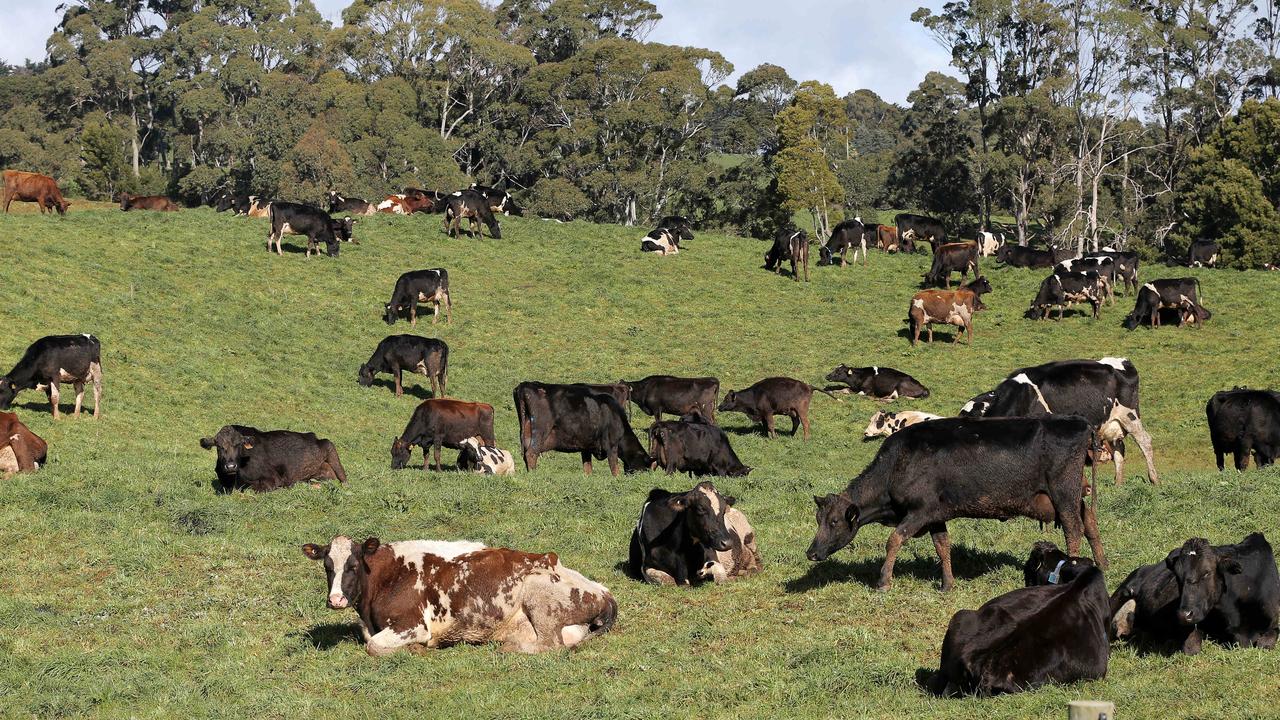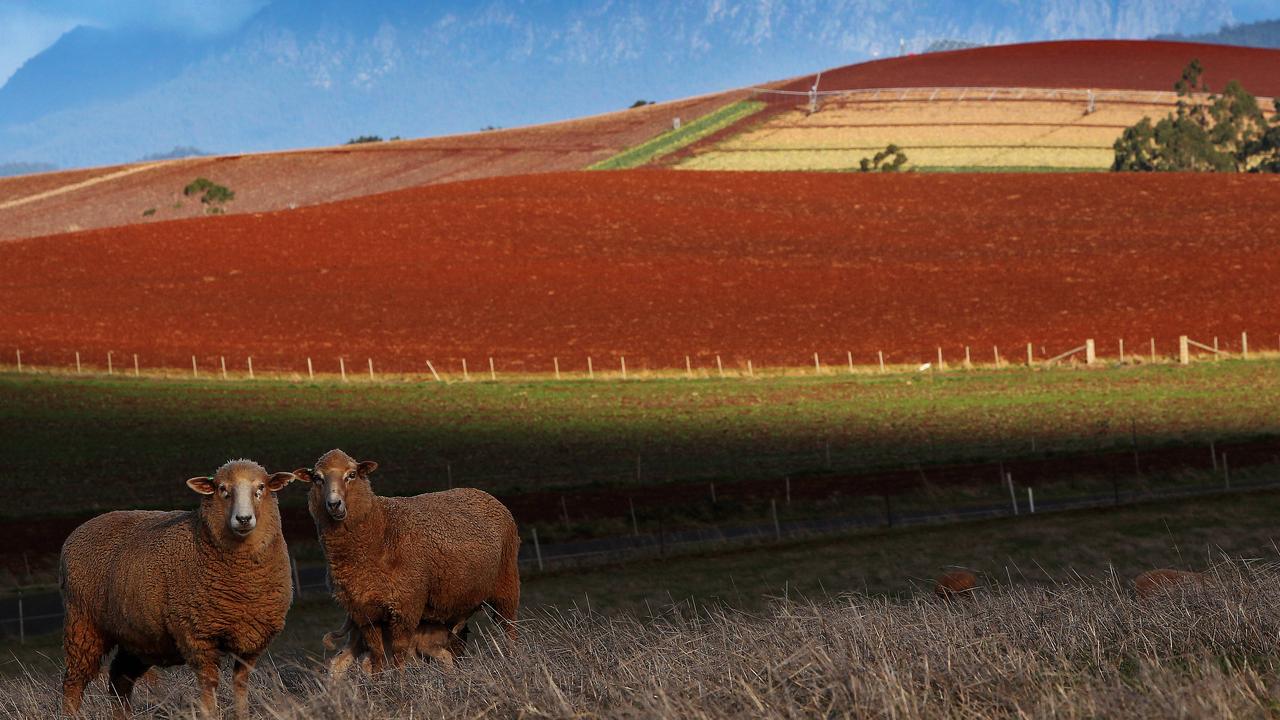Nichols Poultry gives Harford farmers a low risk production opportunity
RAISING 750,000 chickens a year for processing involves a surprising level of care, writes KAROLIN MACGREGOR.
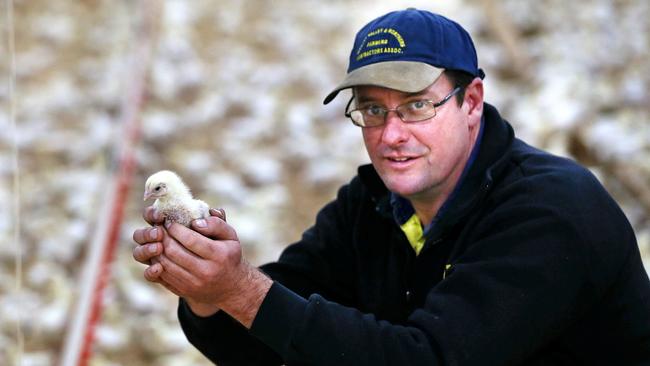
VENTURING into poultry production has been an unexpected but positive move for Matt and Trish Ryan.
After building their first growing shed eight years ago, chicken production is now a big part of their farming business.
The couple farm at Harford and Thirlstane and are one of six contract growers for Nichols Poultry, which is now owned by Tasmanian Food Co.
Mr Ryan has been involved with cropping, particularly vegetables, for more than two decades, so poultry production has been a learning curve.
“If someone had said to me 10 years ago that we’d be in poultry I would have laughed, but it’s an important part of our business now,” he said.
“I didn’t really know much about it when we first started, but the opportunity with Nichols came up so we thought why not give it a try.”
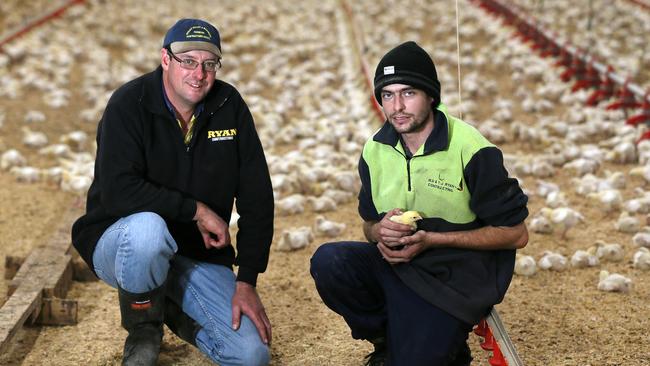
The Ryans recently commissioned their sixth growing shed and will produce about 750,000 chickens a year.
Mr Ryan said the risk profile of chicken production was low and it provided regular cash flow, which made it a good way to diversify.
“One of the other benefits is it has allowed us to use the less productive areas of the farm,” he said.
The sheds are computer- controlled to provide optimum conditions for the chickens. This includes constant monitoring of lighting, temperature, humidity and methane levels.
Sheds are heated to around 34C and fans and venting systems are turned on automatically. The system can send SMS alerts if a fault is detected.
The two newest sheds house about 20,000 chickens each, with about 120,000 in total on the farm at any time.
The farm’s on-site shed manager is Alex Fielding.
Chickens arrive as day-old chicks bred at the Nichols family’s hatchery business at Sisters Creek.
Nichols Poultry has RSPCA approval and Mr Ryan said the guidelines were strict to ensure high standards of animal welfare.
This includes limiting stocking density to ensure the chicken have room to move freely as well as the quality of the litter on the floor, perches and things for the birds to play with.
The shed floor is covered with wood shavings that are regularly hoed to ensure the cover stays soft and friable.
“We have Alex here on site all the time and he’s checking the chickens throughout the day,” Mr Ryan said.
“The computers can control things like the temperature, but they don’t have eyes and ears to look at the chickens and make sure they’re alright.”
The chickens have unlimited access to food and water. They are fed three grain mixes, from a small starter meal when young through to a grower mix and a finishing mix.
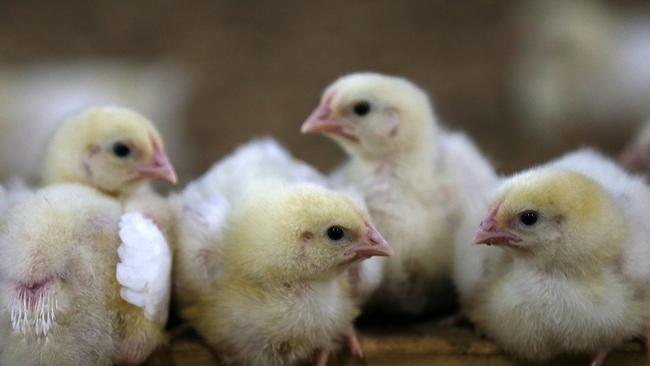
Mr Ryan said the chickens had been bred for feed-conversion efficiency. About 30 years ago it took 55 to 57 days for chickens to reach processing weight. On average, the chickens now were ready in about 35 days and the first birds would be removed from each shed for processing after 32 days.
On average, 40,000 chickens will take about 150 tonnes of feed to grow to processing size.
“There’s a lot of misinformation out there about what we feed the chickens,” Mr Ryan said.
“People think because they grow so fast we’re pumping them full of hormones or something. There’s nothing like that in the food, they’ve just been very carefully selected over a long time. It also means the chickens now are more environmentally friendly because they can get to the weight we need using less grain inputs.”
All sheds are emptied after 40 days and the litter and manure is removed. They are then cleaned and disinfected ready for the next lot of chicks.
Mr Ryan said a benefit was that all the litter from the sheds could be spread across cropping paddocks for fertiliser.
Demand for the premium-brand Nichols chickens is growing and Tas Foods managing director Jane Bennett said the company was investing $2.4 million to upgrade processing.
One improvement is expanding the factory’s air-chilling system.
Unlike many chicken processors that use chlorinated water to chill carcasses after processing, Nichols chickens are cooled in an air-chilled system.
Ms Bennett said the advantage was that the chickens did not absorb water during chilling so the meat remained tender and maintained its flavour.
Most of the chickens processed at Nichols are in stores within 24 hours.
Demand is increasing and Ms Bennett said much of that came down to the Tasmanians being more aware of the origins of their food than the average consumer.
• If you know someone who deserves to be recognised as an outstanding farmer, let us know
However, she said increasing production could take up to two years.
“One of the things we have really focused on in the past 18 months is having a demand-driven business,” she said. “Sales of most foods in Tasmania are seasonal and our population in summer basically doubles because of all the visitors. We’re dealing with a highly perishable product, so we have to make sure that our supply systems are set up to meet those demand fluctuations.”
The company’s range has expanded to include ethical free-range chickens grown in pasture systems using portable sheds.
Over the past 30 years Ms Bennett said chicken consumption had increased, mainly on the back of fast food and pre-cooked barbecued chicken readily available in supermarkets.

